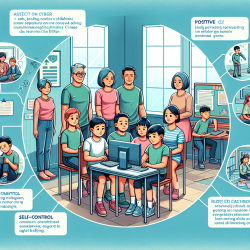Palliative care is a crucial aspect of healthcare that focuses on providing relief from the symptoms and stress of serious illness. In Latin America (LATAM), the development and integration of palliative care into healthcare systems face unique challenges due to cultural, political, and economic factors. This blog aims to guide practitioners in improving their skills by implementing the outcomes of recent research on palliative care in LATAM.
Understanding the Challenges
The narrative review titled "Challenges in Palliative Care in Latin America" identifies several key themes that present both challenges and opportunities for palliative care development in the region. These include:
- Integration into Healthcare Systems: Many LATAM nations operate parallel public and private healthcare systems, which complicates the integration of palliative care services.
- Public Policy and Funding: Developing national plans for palliation is crucial, yet many countries struggle with insufficient funding and policy support.
- Access to Services: Palliative care services are often concentrated in urban areas, leaving rural populations underserved.
- Analgesia and Pain Management: Opioid availability is limited due to regulatory barriers and cultural attitudes toward pain management.
- Clinician Training: There is a significant need for more formalized training programs in palliative care across LATAM.
Opportunities for Improvement
Despite these challenges, there are several opportunities for practitioners to enhance their skills and contribute to the growth of palliative care in LATAM:
- Advocacy for Policy Change: Practitioners can advocate for policies that integrate palliative care into national healthcare systems and ensure adequate funding.
- Embracing Telehealth: Telehealth can help bridge the gap between urban and rural areas, providing access to palliative care services to underserved populations.
- Cultural Competency Training: Understanding the cultural context of patients' beliefs about pain, death, and dying can improve patient-provider communication and care delivery.
- Collaboration with Religious Leaders: Forming alliances with local religious authorities can help address the spiritual needs of patients and their families.
The Role of Education
The need for education in palliative care cannot be overstated. Practitioners should seek opportunities for formal training through courses or workshops that focus on pain management, communication skills, and holistic patient care. Additionally, incorporating palliative care education into medical curricula can prepare future healthcare professionals to provide compassionate end-of-life care.
A Call to Action
Palliative care is recognized as a human right, yet its implementation varies widely across LATAM. Practitioners have a critical role to play in advocating for equitable access to these essential services. By staying informed about current research and engaging in continuous professional development, healthcare providers can help overcome existing barriers and improve the quality of life for patients facing life-limiting illnesses.
Challenges in Palliative Care in Latin America: A Narrative Review










